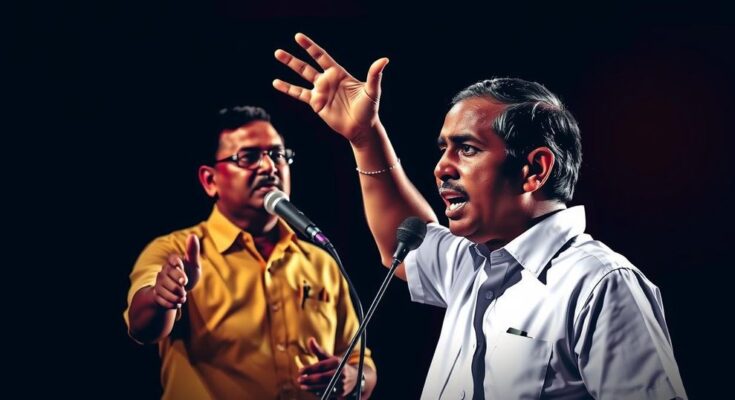Erik Solheim termed the NPP’s electoral win an ‘earthquake’ in Sri Lankan politics, highlighting a strong shift among voters against traditional elites and a desire for new ethnic relations. The NPP’s success in Tamil regions illustrates significant support for a more inclusive approach, with challenges ahead in combating corruption and fostering economic growth.
Erik Solheim, a former Norwegian diplomat involved in Sri Lanka’s peace process, described the recent electoral victory of the National People’s Power (NPP) as a seismic shift in the island’s political landscape. This unexpected triumph, highlighted by an extensive win in Tamil areas, signals a strong desire for improved ethnic relations and a rejection of the traditional political elite. Solheim acknowledged the NPP’s non-corrupt leadership but cautioned that combating corruption remains a monumental challenge. Furthermore, the NPP’s success, particularly among Tamil voters, represents a significant departure from previous alignments, urging a call for inclusivity and fairness.
In his statements, Solheim noted that many traditional Sri Lankan leaders have failed to address national issues adequately, thereby contributing to the country’s decline relative to other Asian nations. He expressed optimism regarding the NPP’s ability to negotiate effectively with international bodies such as the International Monetary Fund (IMF) and to implement inclusive policies that cater to the poor across all ethnic groups. The NPP’s recent achievements suggest a potential shift in the political paradigm, emphasizing the need for ongoing reforms to ensure sustainable economic growth and equitable governance.
The context of this article revolves around the National People’s Power (NPP) party in Sri Lanka and its unprecedented electoral success in the November elections. Led by a new generation of leaders, including President Anura Kumara Dissanayake, the NPP has disrupted the traditional political order dominated by established parties. This victory coincides with widespread public dissatisfaction over corruption and economic hardship, particularly following the country’s financial collapse in 2022. Solheim, who has historical ties to the region and the peace process, provides valuable insights into the implications of the NPP’s rise and the evolving dynamics of ethnic relations in Sri Lanka.
In conclusion, Erik Solheim’s reflections on the NPP’s electoral triumph underscore a momentous shift in Sri Lankan politics, reflecting a collective yearning for change and inclusivity. The NPP’s sweeping success, particularly among previously marginalized Tamil voters, indicates a significant pivot away from ethnic divisions toward a more integrated political narrative. As the NPP seeks to address the pervasive issues of corruption and economic inequality, its ability to foster unity and represent all ethnic groups will be crucial for its long-term legitimacy and governance.
Original Source: thefederal.com




